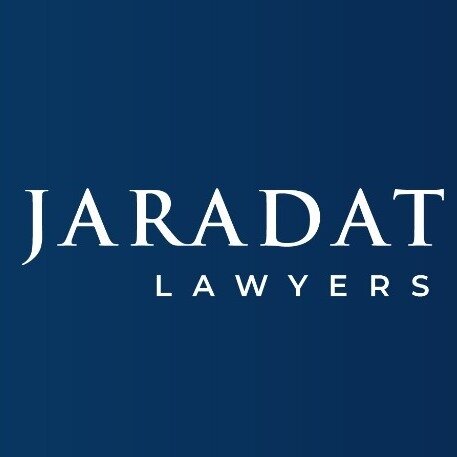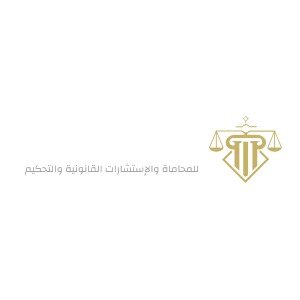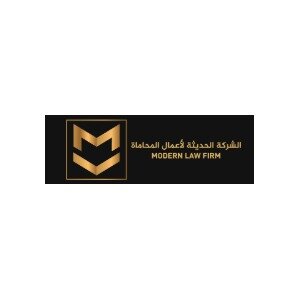Best Energy Regulatory Law Lawyers in Hashemite Kingdom of Jordan
Share your needs with us, get contacted by law firms.
Free. Takes 2 min.
Or refine your search by selecting a city:
List of the best lawyers in Hashemite Kingdom of Jordan
About Energy Regulatory Law in Hashemite Kingdom of Jordan
Energy Regulatory Law in the Hashemite Kingdom of Jordan covers the legal framework that governs the generation, transmission, distribution, and consumption of energy resources within the country. As Jordan continues to diversify its energy sources, including increasing reliance on renewable energy such as solar and wind power, the regulatory environment is critical to ensuring fair access, safe operation, and responsible investment within the energy sector. The Energy and Minerals Regulatory Commission (EMRC) plays a central role in overseeing these activities, issuing licenses, and ensuring compliance with national policies and international agreements.
Why You May Need a Lawyer
There are several common scenarios where seeking legal advice in the area of Energy Regulatory Law in Jordan becomes important. Businesses and investors may require a lawyer to help navigate the complex licensing requirements for energy projects, especially in the renewable sector. Individuals or companies may face disputes regarding energy tariffs, access to the grid, or contract negotiations with energy suppliers or government bodies. Legal advice is also crucial when dealing with compliance matters, environmental permitting, or understanding liability stemming from accidents or regulatory violations. A lawyer can provide guidance on dispute resolution, contractual obligations, and help secure or challenge regulatory decisions.
Local Laws Overview
The main legal framework for energy regulation in Jordan includes several key statutes and regulations. The Law of Electricity No. 64 of 2002 provides the foundation for the sector, covering licensing, tariffs, safety, and the roles of various stakeholders. The Renewable Energy and Energy Efficiency Law No. 13 of 2012 specifically addresses the development and integration of renewable energy sources. The EMRC is responsible for issuing licenses, supervising energy activities, enforcing safety standards, and regulating tariffs. Other relevant laws address environmental impact assessments, public-private partnerships, and cross-border energy agreements. Jordan’s legal structure encourages private investment while maintaining robust oversight to protect consumers and national interests.
Frequently Asked Questions
What is the role of the Energy and Minerals Regulatory Commission (EMRC)?
The EMRC regulates and supervises the electricity, renewable energy, and mining sectors in Jordan, issues licenses, sets tariffs, and ensures compliance with applicable laws and regulations.
Do I need a license to generate electricity for my own use?
Certain small-scale generation for self-consumption may not require a full license, but it is essential to check with the EMRC, as specific rules and thresholds apply, especially for renewable energy installations.
How are energy tariffs determined in Jordan?
Tariffs are set by the EMRC based on economic factors, cost of production, and policy objectives, and are subject to periodic review to ensure fairness and sustainability.
Can foreign companies invest in Jordan’s energy sector?
Yes, Jordan encourages foreign investment in its energy sector, especially in renewable energy. However, there are licensing and regulatory requirements, and legal assistance can help navigate these processes.
What environmental regulations apply to energy projects?
Energy projects must comply with national environmental laws, including conducting Environmental Impact Assessments (EIAs) and obtaining necessary approvals from the Ministry of Environment and other relevant authorities.
What happens if there is a dispute with an energy supplier or regulator?
Disputes can be resolved through negotiation, mediation, or formal legal proceedings. The EMRC may provide mediation, and in some cases, matters may be taken to the appropriate courts or arbitration panels.
Are there incentives for investing in renewable energy?
Jordan offers various incentives, including tax exemptions and guaranteed grid access for approved renewable energy projects, subject to compliance with relevant laws and regulations.
How long does it take to obtain an energy project license?
The licensing process time can vary depending on the type and scale of the project, completeness of the application, and regulatory workload. Consulting a lawyer or specialist expedites the process and avoids delays.
What are the penalties for operating without a license?
Operating without the required license can result in fines, closure of the facility, or other legal actions as determined by the EMRC and applicable laws.
How can I connect my renewable energy system to the national grid?
You must apply through the relevant distribution company and fulfill technical and regulatory requirements as set by the EMRC. Legal advice can help ensure compliance and smooth the process.
Additional Resources
For further information and assistance, the following resources and organizations are valuable:
- Energy and Minerals Regulatory Commission (EMRC) - Primary regulatory authority for energy and minerals in Jordan
- Ministry of Energy and Mineral Resources (MEMR) - Oversees energy policy and sector planning
- Jordan Investment Commission - Offers support and information for foreign and domestic energy investors
- Jordan Renewable Energy & Energy Efficiency Fund (JREEEF) - Provides financial support for renewable energy initiatives
- Local and international law firms specializing in energy law
Next Steps
If you need legal assistance in Energy Regulatory Law in the Hashemite Kingdom of Jordan, start by gathering all relevant information about your situation or project. It is recommended to consult a qualified lawyer with experience in energy regulation as early as possible to avoid costly mistakes. Prepare your documentation, including project plans, permits, contracts, and correspondence with regulators. Contact the EMRC or relevant government body for official guidance where applicable. Lastly, schedule a consultation with a legal expert to assess your needs and determine the most effective strategy moving forward.
Lawzana helps you find the best lawyers and law firms in Hashemite Kingdom of Jordan through a curated and pre-screened list of qualified legal professionals. Our platform offers rankings and detailed profiles of attorneys and law firms, allowing you to compare based on practice areas, including Energy Regulatory Law, experience, and client feedback.
Each profile includes a description of the firm's areas of practice, client reviews, team members and partners, year of establishment, spoken languages, office locations, contact information, social media presence, and any published articles or resources. Most firms on our platform speak English and are experienced in both local and international legal matters.
Get a quote from top-rated law firms in Hashemite Kingdom of Jordan — quickly, securely, and without unnecessary hassle.
Disclaimer:
The information provided on this page is for general informational purposes only and does not constitute legal advice. While we strive to ensure the accuracy and relevance of the content, legal information may change over time, and interpretations of the law can vary. You should always consult with a qualified legal professional for advice specific to your situation.
We disclaim all liability for actions taken or not taken based on the content of this page. If you believe any information is incorrect or outdated, please contact us, and we will review and update it where appropriate.
Browse energy regulatory law law firms by city in Hashemite Kingdom of Jordan
Refine your search by selecting a city.















